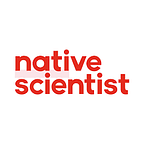Mastering science outreach in my native language
Author: Anna Napolitano
Some people are particularly good with languages. They feel confident in a foreign country within days and start picking up slang in a few weeks. I was never like that. Even though I studied English since primary school, when I enrolled in an international PhD programme, English was my weakest point. The PhD school and a demanding supervisor helped improve my language skills, but by the time I graduated, English was still a struggle. Besides, I had had enough of working at the bench and wanted to do something different in science. So, what’s the best way to start a new career and brush-up on my language skills if not to move to a different country? The UK felt like the best place to finally become comfortable in speaking the scientific ‘lingua franca’ and make a career change. Once in London, I quickly realized that if talking about my own project to my peers in a tongue that is not my mother tongue was difficult, trying to explain science to the general public, who don’t necessarily know, for example, what a gene is, seemed almost like a mission impossible. What had I done? The challenge I embarked on was bigger than I had anticipated, but, as the German philosopher, Friedrich Nietzsche, said, “What doesn’t kill you, makes you stronger”, so I persisted and insisted, and I started to get involved in as many outreach projects as possible, eager to learn new skills and break the language barrier. Doing outreach side by side with English native speakers was both a benefit and a trial. While it can easily put down your non-native’s ego, you learn immensely. While it hadn’t really mattered how good my English was when I was doing research, as long as I could make myself understood, when communicating to the general public I really needed to feel confident in my language skills. And way too often in my early days in the UK, I saw myself struggling to come up with the right words, feeling overwhelmed with embarrassment, in front of a bunch of people eager to hear about the latest scientific discoveries in my field.
A fellow postdoc of mine mentioned a project called Native Scientist that gave scientists the opportunity to do science outreach in their mother tongue while living abroad. At that time, this sounded like an opportunity coming from heaven. Two Portuguese researchers had started a project in London, bringing together scientists with migrant pupils. They were looking for volunteers to expand the project to other languages. I teamed up with my friend and colleague Elena De Domenico, and we set up the project in Italian. It was my chance to do science outreach in London, using the language I was confident in! In the classroom, we found a full spectrum of possibilities: from children who spoke and understood both English and Italian as mother tongues, to children that did not understand a single word of their parent’s language, or children who had just arrived to the UK from Italy and were, like me, struggling with the local language. Finding ways to make science appealing is challenging in every language; with Native Scientist I have learned to do so in a hybrid language: borrowing words from English while speaking Italian and the other way around. This was at the same time building my self-confidence and giving me a sense of reward.
After almost four years of Italian workshops in the UK, I have not only perfected my communication skills but also the capacity to explain science in simple words switching from one language to another as I speak. Doing science outreach in my mother tongue in a foreign country ended up helping me in speaking English, pushing the career move that I had first sought when moving to the UK.
Thanks to this outreach project, I have met and spoken to lots of scientists for whom English is a second language. I believe that showing the future generations that we can do and communicate science in languages other than English is a precious lesson. Yes, English is the de facto global language of science, but science communicators are the bridge between science and society, and societies do speak a variety of languages.
If we want to generate a discussion around science and want to inform the masses about the importance of scientific discoveries, being able to do so using different languages is essential. In the melting pot of languages that modern society is, with increasingly more foreign words being officially adopted by different languages, I cannot help but smile when listening to random conversations on public transport in a foreign country and recognize words such as “virus” — one can immediately have a good grasp of what they are talking about. Science is everywhere, even if you don’t speak it.
About the author: Anna Napolitano is a QA and 3Rs Programme Manager at Imperial College London, and the Italian Coordinator in London for Native Scientist. Anna has always had a deep interest in the communication of science; she started her career as a research scientist and is now a full-time science writer, science editor and science communicator. She believes that it is only through rigorous yet compelling communication strategies that we can achieve a better understanding of healthcare issues and contribute to the progress of science — and she is committed to playing her part.
About Native Scientist: Native Scientist is an award-winning European-wide non-profit organisation that promotes cultural diversity in science, education and society. Native Scientist provides science and language workshops, science communication training, and bespoke projects for various institutions, including schools, universities and embassies. The work developed connects pupils with scientists to foster science and language literacy through role modelling and science and language integrated learning. Founded in 2013, their work reaches over 1,200 pupils a year and they count with a network of over 1,000 international scientists.
